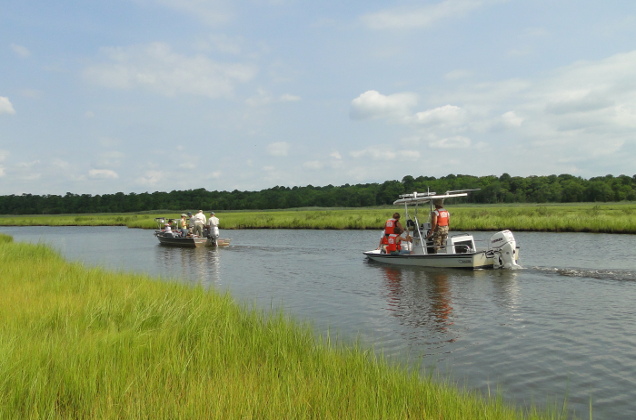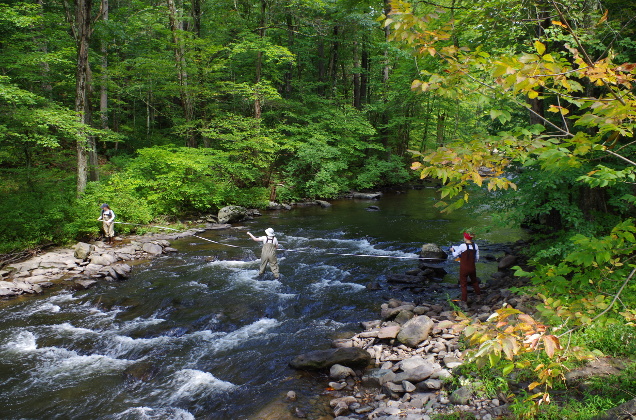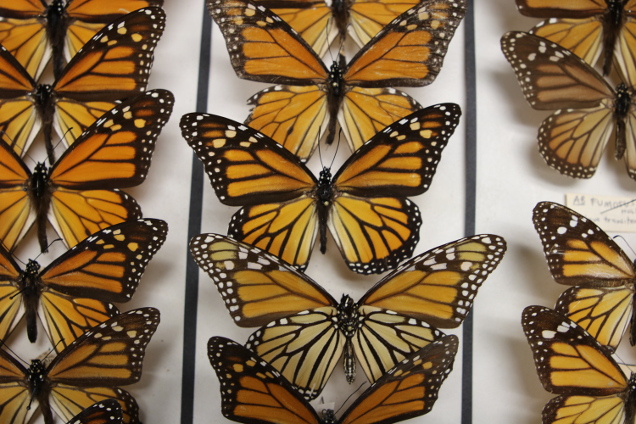Where We Stand
The success of our nation and the future of our planet depend on the prioritization and advancement of scientific research and education. Founded in 1812, the Academy of Natural Sciences of Drexel University is a leading natural history museum dedicated to understanding the natural world and inspiring everyone to care for it.
The Academy is committed to building knowledge, sparking curiosity, and inspiring solutions to ensure a healthy future. We present real science, discuss real-world problems, and identify ways to make a difference by applying the knowledge we gain.
Position Statements
The Academy of Natural Sciences of Drexel University advances research, education, and public engagement in biodiversity and environmental science. The Academy also has an explicit goal to promote positive human impacts through the communication and application of rigorous science.
Statement on Climate Change
Academy research supports the consensus of the scientific community that the earth is warming and climates are changing at an unprecedented rate. The Academy also supports the consensus that these changes are largely because of human activity, including increased emissions of particular greenhouse gases, in the atmosphere.
Because climate change has the potential to disrupt human and natural ecosystems, the Academy will continue its critical research to understand environmental conditions, processes, and their impacts. We also will conduct research in support of climate adaptation and mitigation strategies.
Statement on Water
Water is necessary for all life, and supplying clean water is one of the most critical resource issues of our time. Yet, in many places, adequate supplies of clean water are in danger or are simply not available. Large-scale human activities, including urbanization, agriculture, and emissions that affect climate change, are overwhelming many of the natural processes that control the availability and quality of freshwater. One of the great challenges will be to balance immediate human needs with the long-term health of aquatic systems locally, regionally, and globally.
To meet this challenge, the Academy has led critical water research and environmental outreach for over 70 years. We will continue to investigate the complex human and natural systems connected to water quality and quantity and to seek potential solutions for our threatened water resources.
Statement on Evolution
There is an overwhelmingly strong body of firmly grounded scientific evidence that validates evolution. Given that there is no longer debate among scientists about whether evolution has occurred and is occurring, the Academy will continue to conduct research and present programming that explicitly includes evolution.
To teach or practice science without acknowledgement of evolution deprives the public of a powerful concept that explains the order and coherence of life itself. Among other things, evolution informs how we treat human diseases, produce food crops, and develop conservation plans for habitats and wildlife.
Statement on Biodiversity and Extinction
The earth is experiencing a sixth mass extinction and a significant loss of biodiversity. Clear scientific evidence reveals that its cause is the effects of human activities over just the last few centuries. These activities, such as the wholesale burning of fossil fuels, reduction of forests and wetlands and increase in impervious landscapes, greatly threaten our ecosystems on which all life depends.
Diverse ecosystems are healthy ecosystems, and measuring biodiversity is a critical means of gauging environmental health. Since its founding in 1812, the Academy has been studying the variety and distribution of living things and their extinction and has amassed a research collection of more than 18 million specimens that serve as a treasured resource for scientists around the world. The Academy will continue its research on biodiversity and extinction, which enables scientists to better understand the dynamics of the natural world and allows policymakers and stakeholders to make informed decisions about issues that impact our everyday lives.

Statement on Culture and Belonging
The Academy is committed to nurturing a learning community that is diverse in backgrounds, perspectives and ideas and is free from bias or discrimination It is committed to making engagement, education and research more accessible and producing outcomes that offer equal opportunity to all.
The Academy is also committed to creating a welcoming environment in which staff, volunteers, students, stakeholders and visitors are respected and valued, multiple perspectives are shared and respectful conversations are encouraged.